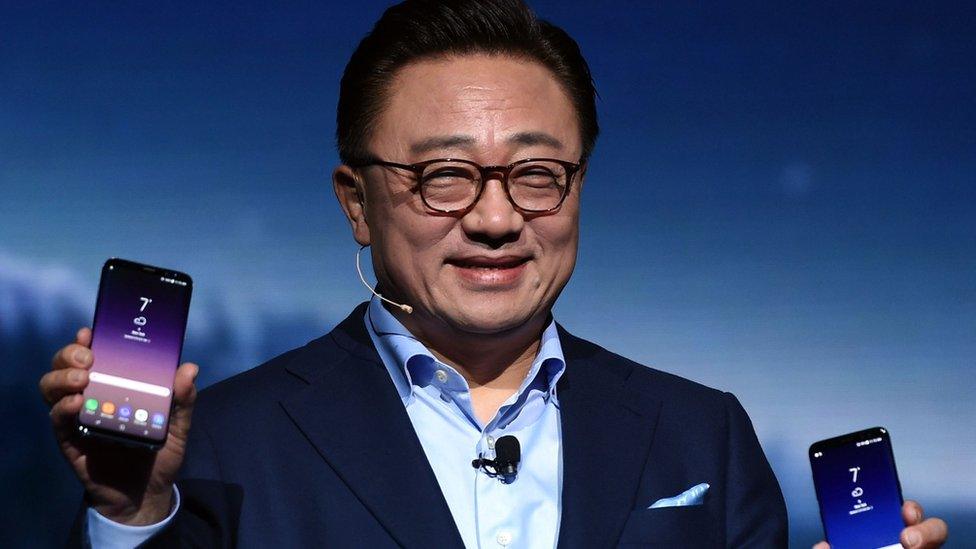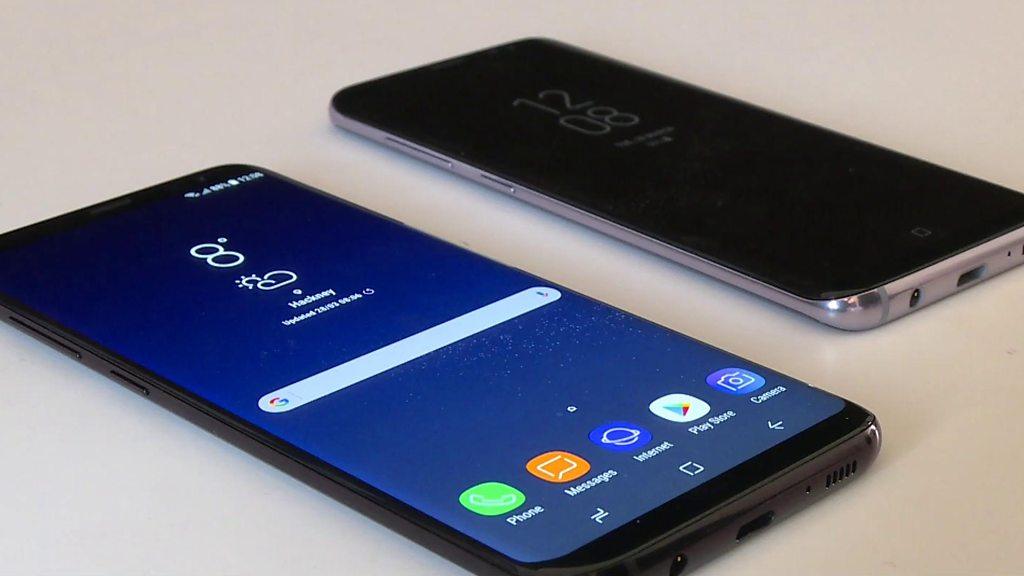Samsung working on home smart speaker
- Published

Samsung's DJ Koh
Samsung has confirmed it is developing its own voice-controlled "smart speaker" for the home, to rival devices by Amazon and Google.
DJ Koh, head of Samsung's mobile division, told CNBC News: "I am already working on it."
The company already has a voice-controlled assistant called Bixby on some of its devices, which can send messages and set reminders.
One analyst said Samsung would have to differentiate itself from competitors.
Voice-controlled smart speakers are typically used to play music, set a timer, add items to a shopping list and control other internet-connected gadgets around the home.
Amazon's Echo speaker can be used to buy products from the online retailer, while Google's Home speaker can retrieve search results in a conversational way, and play YouTube videos on a compatible television.
'Fruitful experience'
"Samsung will have to do something different," said Ranjit Atwal, a research director at Gartner.
"There is no point building your own IP (intellectual property) if it replicates what is out there already."
Samsung already manufactures internet-connected appliances such as fridges and televisions, but its Bixby voice assistant currently only appears on a small number of its latest smartphones.
There, it can perform some tasks that Google's voice assistant and Apple's Siri cannot do, such as "take a screenshot and post it on Facebook".
But Mr Koh said he wanted to provide "a fruitful user experience at home" and said he would be "moving quite heavily on it".
Zoe Kleinman tried Bixby in March
Gartner predicts that worldwide spending on smart speakers will reach $3.52bn (£2.5bn) by 2021.
Their value for the technology giants lies in their ability to collect data and offer add-on services such as online shopping and music streaming.
"It's less to do with the speaker, and more to do with making their voice assistants more pervasive," said Mr Atwal.
"What Samsung needs is data. The more data you have, the more variety you have, the quicker you learn and the better the product - that's why Google is so good at providing a breadth of services.
"Trying to make everything smart and intelligent is a big job. Samsung needs to narrow its focus and look at where it might be able to provide value to its users."
- Published29 March 2017

- Published23 August 2017
